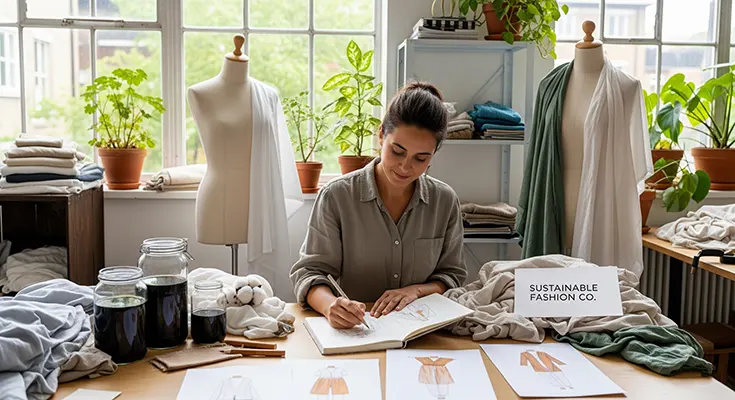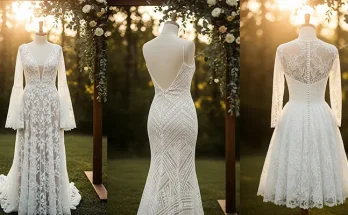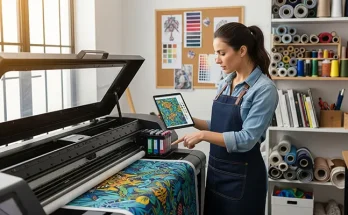The fashion industry is evolving rapidly, with sustainability becoming a central focus for brands and designers worldwide. Many aspiring fashion designers dream of launching a career in sustainable fashion but face the obstacle of not having a formal degree. The good news is that a university degree is not a mandatory ticket to success. With passion, creativity, and strategic planning, you can build a thriving sustainable fashion design career without traditional academic qualifications. Here’s a comprehensive guide on how to start your journey.
1. Develop a Strong Foundation in Sustainable Fashion
Before diving into design, it’s crucial to understand what sustainable fashion truly means. Sustainability in fashion encompasses ethical sourcing, eco-friendly materials, fair labor practices, and minimizing environmental impacts.
- Self-Education: Utilize free and paid online courses, webinars, and workshops focused on sustainable fashion. Platforms like Coursera, Udemy, and edX offer courses on sustainability, textiles, and ethical fashion.
- Read Extensively: Stay updated with books, blogs, documentaries, and reports on sustainable fashion trends, practices, and industry challenges.
- Follow Thought Leaders: Engage with social media accounts, podcasts, and newsletters from leaders in sustainable fashion to gain insights and inspiration.
2. Build Practical Skills through Hands-On Experience
Practical experience is invaluable when starting without a degree. Focus on developing your skills through accessible and affordable avenues.
- Learn to Sew and Design: Practice sketching designs and sewing techniques. Start with simple projects and gradually advance. Tutorials on YouTube and sewing blogs can be excellent resources.
- Experiment with Sustainable Materials: Source eco-friendly fabrics such as organic cotton, hemp, bamboo, or recycled textiles. Understanding how these materials behave is key to responsible design.
- DIY Projects and Upcycling: Engage in upcycling old garments to create new, fashionable items, showing creativity and commitment to sustainability.
- Freelance and Intern: Offer your services to local sustainable brands, community projects, or start small collaborations. Real-world experience builds your portfolio and network.
3. Network within the Sustainable Fashion Community
A strong network opens doors to opportunities and collaborations.
- Join Online Communities: Platforms such as LinkedIn groups, Facebook communities, and sustainability forums connect like-minded individuals.
- Attend Industry Events: Participate in sustainable fashion workshops, trade shows, and seminars whenever possible.
- Volunteer or Collaborate: Engage in environmental and fashion-related initiatives for hands-on experience and connections.
- Social Media Presence: Showcase your work, ideas, and values on Instagram, TikTok, or Pinterest to attract mentors, collaborators, and followers.
4. Create a Portfolio that Highlights Sustainability
A well-curated portfolio is essential to demonstrate your skills, creativity, and commitment to sustainable values.
- Document Your Work: Include photos and descriptions of designs, upcycled projects, and any collaborative works. Highlight the sustainable aspects of each piece.
- Build a Digital Portfolio: Use websites like Behance, Wix, or Squarespace to create an accessible, professional portfolio.
- Tell Your Story: Share your journey and philosophy about sustainable fashion to connect emotionally with viewers, clients, or employers.
5. Launch Your Brand or Freelance Career Smartly
With knowledge, skills, experience, and a portfolio, you are ready to step into the market.
- Start Small: Launch a capsule collection or limited runs using sustainable materials. This reduces risk and allows you to focus on quality.
- Leverage E-commerce: Platforms like Etsy, Depop, or your own website can be used to sell your designs without the overhead of physical stores.
- Focus on Transparency: Communicate openly about your sourcing, production practices, and brand values to build trust with conscientious consumers.
- Seek Funding and Support: Explore grants, sustainable fashion incubators, and crowdfunding platforms designed to support eco-friendly startups.
6. Continuously Learn and Adapt
The sustainable fashion landscape is constantly evolving.
- Stay Updated: Follow emerging trends, regulations, technologies, and consumer preferences.
- Seek Feedback: Engage with customers and industry peers to improve your designs and processes.
- Experiment and Innovate: Incorporate new materials, production techniques, and business models that further sustainability goals.
Final Thoughts
Starting a sustainable fashion design career without a degree is entirely possible with dedication, resourcefulness, and a genuine passion for ethical fashion. By educating yourself, building hands-on skills, networking strategically, and showcasing your commitment to sustainability, you can carve out a meaningful place in the fashion industry. Remember, the future of fashion lies in creativity aligned with responsibility—your unique vision can lead the way.





